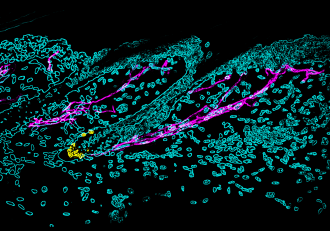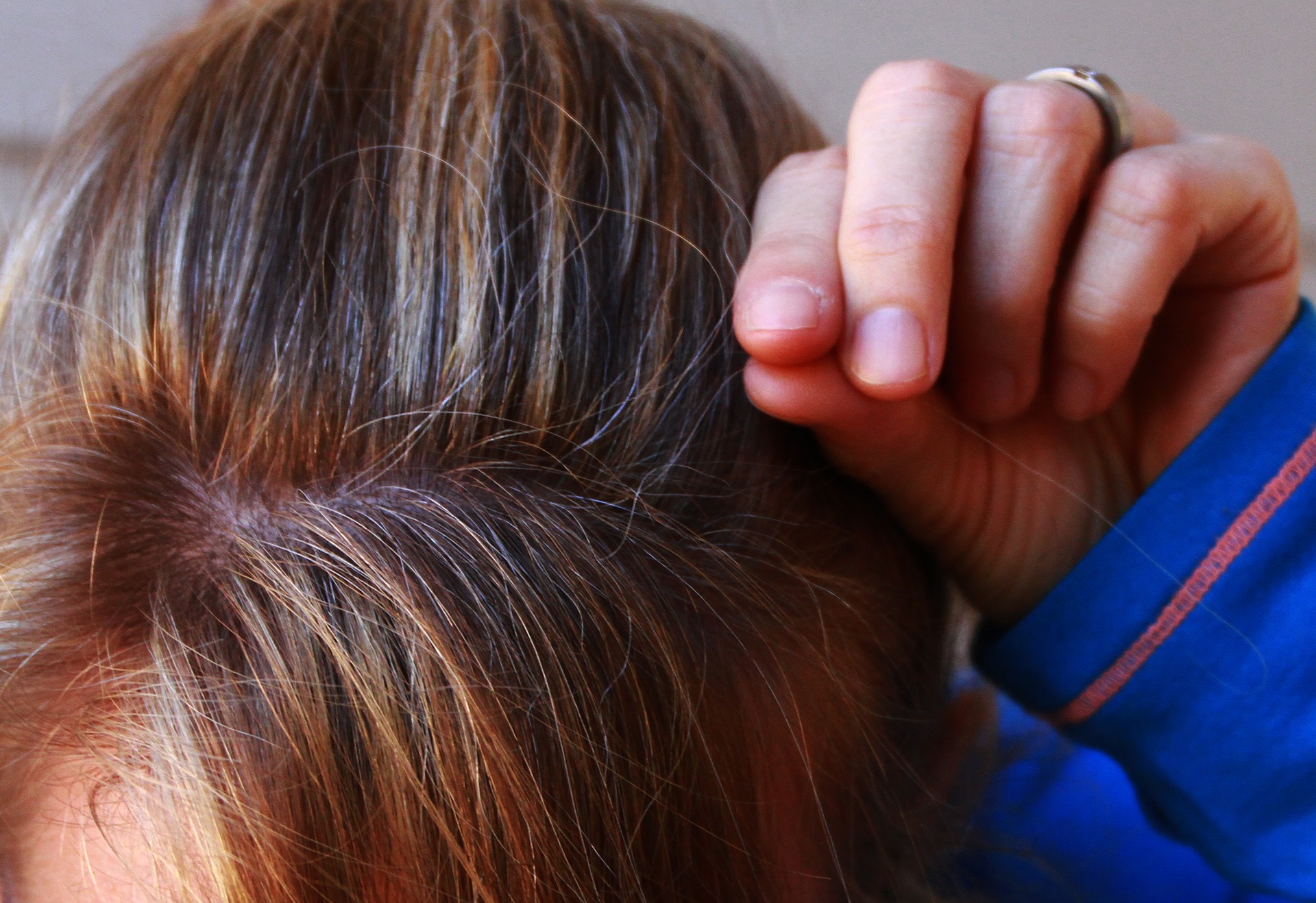Media release
From:
Stress can cause hair to turn grey in rodents by triggering the depletion of pigment-forming stem cells in hair follicles, reports a study in Nature. This effect seems to be driven by activation of the sympathetic nervous system, rather than by immune attacks or stress-related hormones — contrary to previous theories.
Stress has been linked to accelerated hair greying, although an underlying mechanism has been elusive. The loss of pigment in hair has been shown previously to be mediated by the depletion of melanocyte stem cells. Ya-Chieh Hsu and colleagues demonstrate that this pathway is involved in stress-induced hair greying in mice. Mice that were exposed to physical or psychological stresses showed a reduction in numbers of melanocyte stem cells within days, and displayed accelerated faster hair greying. The authors find that stress activates the sympathetic nervous system, inducing the release of a neurotransmitter called noradrenaline that causes melanocyte stem cells to proliferate, turn into specialized cells and eventually move away, thereby removing a source of pigmentation for the hair. Blocking proliferation was shown to prevent the loss of melanocyte stem cells and hair greying in the mice.
This role of the sympathetic nervous system, which is involved in automatic responses to danger or stress, in stress-related hair greying might have implications for our understanding of the effects of stress on other parts of the body, the authors suggest.
Multimedia





 International
International



